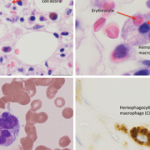At least 6% of patients who used biologic disease-modifying anti-rheumatic drugs (bDMARDs) suffered refractory disease, according to a recent study based on data from the British Society for Rheumatology Biologics Registry for Rheumatoid Arthritis.1 This observational study evaluated the extent of biologic refractory rheumatoid arthritis (RA). The study defined biologic refractory disease as occurring in…









